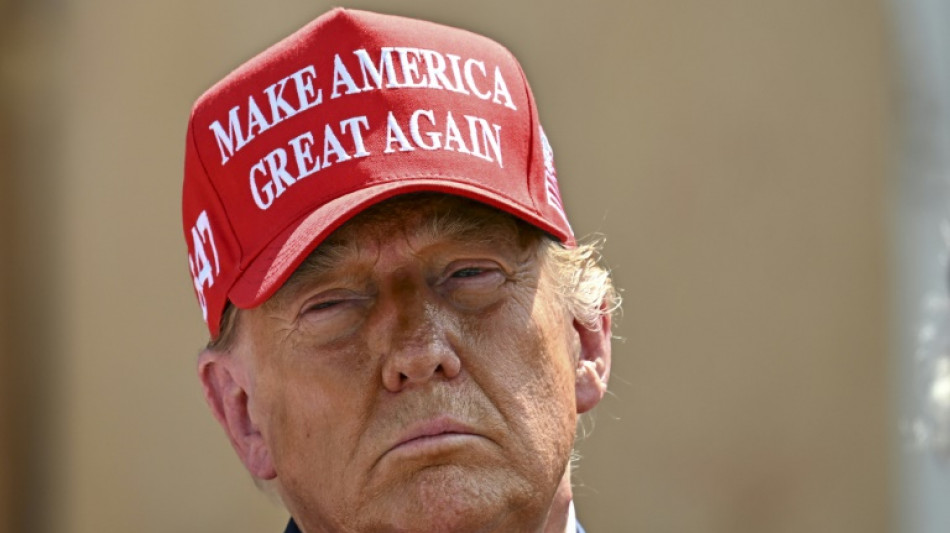
-
 US consumer confidence tumbles in December
US consumer confidence tumbles in December
-
Norwegian biathlete Sivert Guttorm Bakken found dead in hotel

-
 UK comedian Russell Brand faces two new rape, assault charges: police
UK comedian Russell Brand faces two new rape, assault charges: police
-
Venezuela seeks to jail backers of US oil blockade
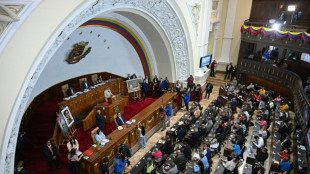
-
 Norwegian biathlete Sivert Guttorm Bakken found dead
Norwegian biathlete Sivert Guttorm Bakken found dead
-
Wall Street stocks edge higher

-
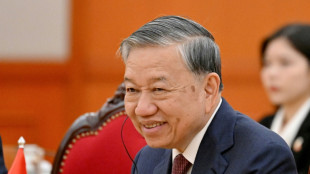 Vietnam Communist Party endorses To Lam to stay in top job
Vietnam Communist Party endorses To Lam to stay in top job
-
US economic growth surges in 3rd quarter, highest rate in two years

-
 Frank defends Van de Ven after Slot slams 'reckless' foul on Isak
Frank defends Van de Ven after Slot slams 'reckless' foul on Isak
-
Russian paramilitaries in CAR say take election threat 'extremely seriously'

-
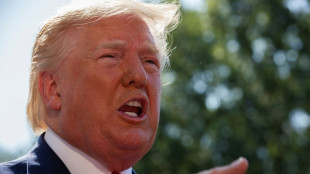 Trump in the Epstein files: five takeaways from latest release
Trump in the Epstein files: five takeaways from latest release
-
UK govt to relax farmers inheritance tax after protests
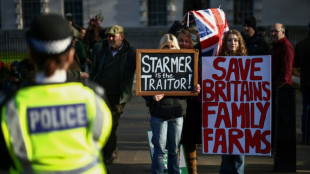
-
 Pakistani firm wins auction for state airline PIA
Pakistani firm wins auction for state airline PIA
-
Stocks slip on strong US growth data

-
 DR Congo beat Benin to kick off Cup of Nations bid
DR Congo beat Benin to kick off Cup of Nations bid
-
New Epstein files dump contains multiple Trump references

-
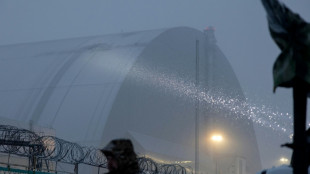 Russian strike could collapse Chernobyl shelter: plant director
Russian strike could collapse Chernobyl shelter: plant director
-
Springbok captain Kolisi to rejoin Stormers

-
 Italy fines Ryanair $300 mn for abuse of dominant position
Italy fines Ryanair $300 mn for abuse of dominant position
-
Mahrez eyes strong AFCON showing from Algeria

-
 Killer in Croatia school attack gets maximum 50-year sentence
Killer in Croatia school attack gets maximum 50-year sentence
-
Thousands of new Epstein-linked documents released by US Justice Dept
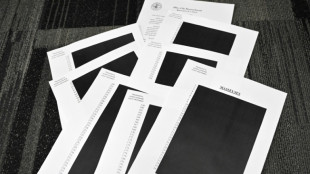
-
 Stocks steady as rate cut hopes bring Christmas cheer
Stocks steady as rate cut hopes bring Christmas cheer
-
Bangladesh summons Indian envoy as protest erupts in New Delhi
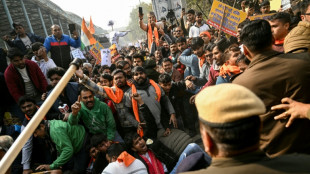
-
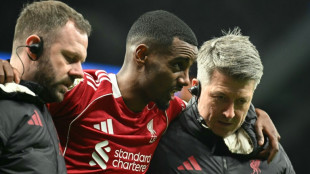 Liverpool's Isak faces two months out after 'reckless' tackle: Slot
Liverpool's Isak faces two months out after 'reckless' tackle: Slot
-
For director Josh Safdie, 'Marty Supreme' and Timothee Chalamet are one and the same

-
 Kyiv's wartime Christmas showcases city's 'split' reality
Kyiv's wartime Christmas showcases city's 'split' reality
-
Locals sound alarm as Bijagos Islands slowly swallowed by sea

-
 Cambodia asks Thailand to move border talks to Malaysia
Cambodia asks Thailand to move border talks to Malaysia
-
In Bulgaria, villagers fret about euro introduction

-
 Key to probe England's 'stag-do' drinking on Ashes beach break
Key to probe England's 'stag-do' drinking on Ashes beach break
-
Delayed US data expected to show solid growth in 3rd quarter
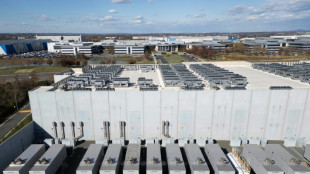
-
 Thunder bounce back to down Grizzlies, Nuggets sink Jazz
Thunder bounce back to down Grizzlies, Nuggets sink Jazz
-
Amazon says blocked 1,800 North Koreans from applying for jobs

-
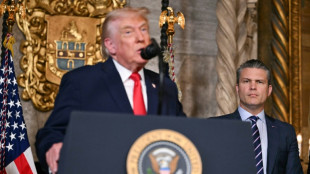 Trump says US needs Greenland 'for national security'
Trump says US needs Greenland 'for national security'
-
Purdy first 49er since Montana to throw five TDs as Colts beaten

-
 North Korea's Kim tours hot tubs, BBQ joints at lavish new mountain resort
North Korea's Kim tours hot tubs, BBQ joints at lavish new mountain resort
-
Asian markets rally again as rate cut hopes bring Christmas cheer
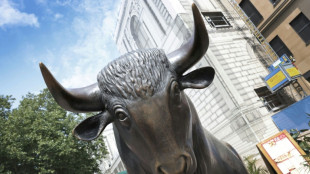
-
 Australian state poised to approve sweeping new gun laws, protest ban
Australian state poised to approve sweeping new gun laws, protest ban
-
Trapped under Israeli bombardment, Gazans fear the 'new border'

-
 Families want answers a year after South Korea's deadliest plane crash
Families want answers a year after South Korea's deadliest plane crash
-
Myanmar's long march of military rule

-
 Disputed Myanmar election wins China's vote of confidence
Disputed Myanmar election wins China's vote of confidence
-
Myanmar junta stages election after five years of civil war
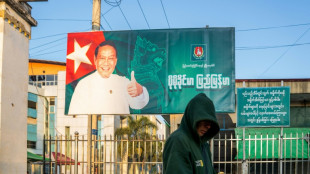
-
 Ozempic Meals? Restaurants shrink portions to match bite-sized hunger
Ozempic Meals? Restaurants shrink portions to match bite-sized hunger
-
'Help me, I'm dying': inside Ecuador's TB-ridden gang-plagued prisons

-
 Australia's Cummins, Lyon out of fourth Ashes Test
Australia's Cummins, Lyon out of fourth Ashes Test
-
US singer Barry Manilow reveals lung cancer diagnosis

-
 'Call of Duty' co-creator Vince Zampella killed in car crash
'Call of Duty' co-creator Vince Zampella killed in car crash
-
Investor Tools Highlighted by BNK Invest

| SCS | 0.12% | 16.14 | $ | |
| CMSC | 0.01% | 23.1399 | $ | |
| BCC | -1.28% | 73.29 | $ | |
| AZN | 0.47% | 91.985 | $ | |
| BCE | -0.11% | 22.705 | $ | |
| RIO | 1.15% | 81.03 | $ | |
| NGG | 1.09% | 77.255 | $ | |
| BTI | 0.36% | 56.975 | $ | |
| CMSD | -0.78% | 23.02 | $ | |
| GSK | 0.3% | 48.735 | $ | |
| JRI | 0.37% | 13.42 | $ | |
| BP | 1.16% | 34.541 | $ | |
| RBGPF | 0% | 80.22 | $ | |
| RELX | -0.09% | 40.945 | $ | |
| VOD | 1.23% | 13.04 | $ | |
| RYCEF | 0.19% | 15.53 | $ |

Low taxes, high tariffs: What a Trump victory means for the US economy
Donald Trump's victory in the 2024 US presidential election is likely to usher in a raft of economic changes at home and abroad, touching everything from foreign trade to the independence of the US central bank.
He will reap the benefits of an economy that is in good shape, with strong growth, low unemployment, and inflation that is rapidly approaching the Federal Reserve's long-term two percent target after years of higher interest rates.
Yet his victory came as voters have expressed dissatisfaction with the cost of living as a result of a post-pandemic surge in inflation that pushed consumer prices up by more than 20 percent.
While many of the incoming Republican president's proposals will ultimately live or die in Congress -- which controls the purse strings of the world's largest economy -- there is still a significant amount he can do to shape economic policy.
- Tariffs and trade -
On the campaign trail, Trump said he would put in place across-the-board import tariffs of between 10 and 20 percent in a bid to raise revenues, protect domestic industries, and bring jobs back to the United States.
He has also threatened to impose a 60 percent tariff on Chinese goods, and even floated a 200 percent-plus levy on cars made in Mexico.
"To me 'tariff' is a very beautiful word," he said in a recent Fox News interview. "It's a word that's going to make our country rich again."
Trump "has made no mystery of the fact that he's deeply enamored with tariffs as a policy tool," Kimberly Clausing, a nonresident senior fellow at the Peterson Institute for International Economics (PIIE) told AFP on Tuesday, adding she thought he would put in place large tariffs if elected.
If enacted, these policies will undoubtedly have a significant impact on US and international trade, rerouting the flow of goods and reshaping international economic ties.
But while they may raise some revenues, they will also hit US businesses and consumers hard, according to a recent paper by the Tax Foundation nonprofit.
If imposed, Trump's proposed tariff increases would raise taxes on businesses by another $524 billion annually, shrink GDP by at least 0.8 percent, and reduce employment by close to 700,000 full-time equivalent jobs, the researchers estimated.
"I think it's just sort of a very quick way to shoot the US economy in the foot, if not the leg," said Clausing, a former deputy assistant secretary for Tax Analysis in the US Treasury Department during the Biden Administration.
- Inflation and the Fed -
Alongside his tariff plans, Trump has also indicated that he would like "at least" a say over interest rates -- which are currently set by the independent US central bank -- and suggested he would look to deport millions of undocumented workers.
Economists at PIIE recently estimated that the combined effect of Trump's plans for higher tariffs, mass deportation of undocumented workers, and greater control over Fed policy would slash US economic output by between 2.8 and 9.7 percent in real terms by the end of his term in 2028.
Employment would also be hit, according to PIIE's analysis, and inflation could reignite, peaking at 9.3 percent in 2026 in a worst-case scenario -- above the four-decade high it reached in 2022.
- Taxes -
The nonpartisan Committee for a Responsible Federal Budget (CRFB) estimates that Trump's economic agenda could increase the national debt by as much as $15 trillion over a decade -- almost twice as much as Kamala Harris's plans would have done in a worst-case scenario.
A significant chunk of the additional costs come from Trump's proposals to extend his tax cuts from 2017, which are set to expire next year.
But extending the Trump tax cuts would rely on Congressional support, where overall control of the House remains uncertain. Democrats have indicated that there are many parts of these plans they would not want to renew if they win back the House.
Overall, many of Trump's policies could end up hurting some of the poorest in society, Margot Crandall-Hollick, principal research associate at the Urban-Brookings Tax Policy Center, told AFP.
"I think a Trump presidency would probably provide pretty limited, if any, benefits for low income folks," she said.
"And if you add the tariffs, which are going to increase the cost of goods that everyday people use, it would be a net negative for most low and moderate income folks," she added.
F.Bennett--AMWN